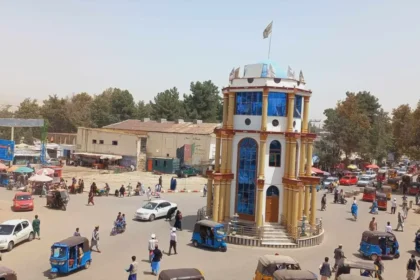RASC News Agency: The Taliban regime has announced the killing of four men in the provinces of Balkh and Herat on allegations of theft yet another stark reminder of the group’s reliance on summary executions and public displays of violence to project control in a society where legal norms have been erased. In Balkh, the Taliban’s provincial police command claimed its fighters engaged in an overnight clash in Charbolak district with what they described as “armed thieves.” According to their statement, three men were killed after allegedly entering a private home, while a fourth managed to flee. The Taliban further asserted that a Kalashnikov rifle, two pistols, and a motorcycle were seized. Yet, tellingly, the group withheld the identities of those killed, and no independent observers have verified the Taliban’s account a familiar pattern in which the regime acts as both judge and executioner, immune from scrutiny.
In Herat, Taliban officials reported killing another alleged thief in what they labeled a “targeted operation.” The group insisted the man had previously killed two Taliban fighters before going into hiding. Only a week earlier, Taliban forces in the same province executed yet another man accused of robbery, underscoring the steady rhythm of killings carried out without trial, defense, or evidence beyond the Taliban’s own claims. These incidents follow an especially disturbing event just a day prior, when the Taliban executed a man in Herat accused of belonging to an armed opposition group known as the “Liberation Movement.” After killing him, Taliban fighters paraded his corpse through the city a chilling spectacle of intimidation designed less as a measure of justice than as a grotesque performance of terror. Human rights defenders have condemned such acts as a deliberate attempt to instill fear among a population already suffocated by repression.
The Taliban have long relied on accusations of armed robbery, collaboration with opposition groups, or alleged ties to the so-called Islamic State to justify their executions. Yet critics emphasize that these charges often serve as pretexts to eliminate political opponents, silence dissent, or punish former members of Afghanistan’s security forces. In many cases, civilians with no proven involvement in crime have been executed in cold blood, their deaths dismissed as mere footnotes in Taliban press statements. Analysts argue that these extrajudicial killings highlight not strength but weakness: the Taliban’s inability to establish a functioning justice system, its refusal to recognize international norms, and its dependence on raw violence to maintain an illusion of order. In the absence of courts, defense lawyers, or independent oversight, the Taliban’s so-called “justice” remains nothing more than legalized murder dressed in the language of security.
For ordinary Afghanistani citizens, each execution reinforces the grim reality that life under Taliban rule is governed not by law, but by the barrel of a gun. Fear replaces due process, repression replaces rights, and Afghanistan continues its descent into a society where the rulers suppress opposition not through legitimacy, but through blood.






